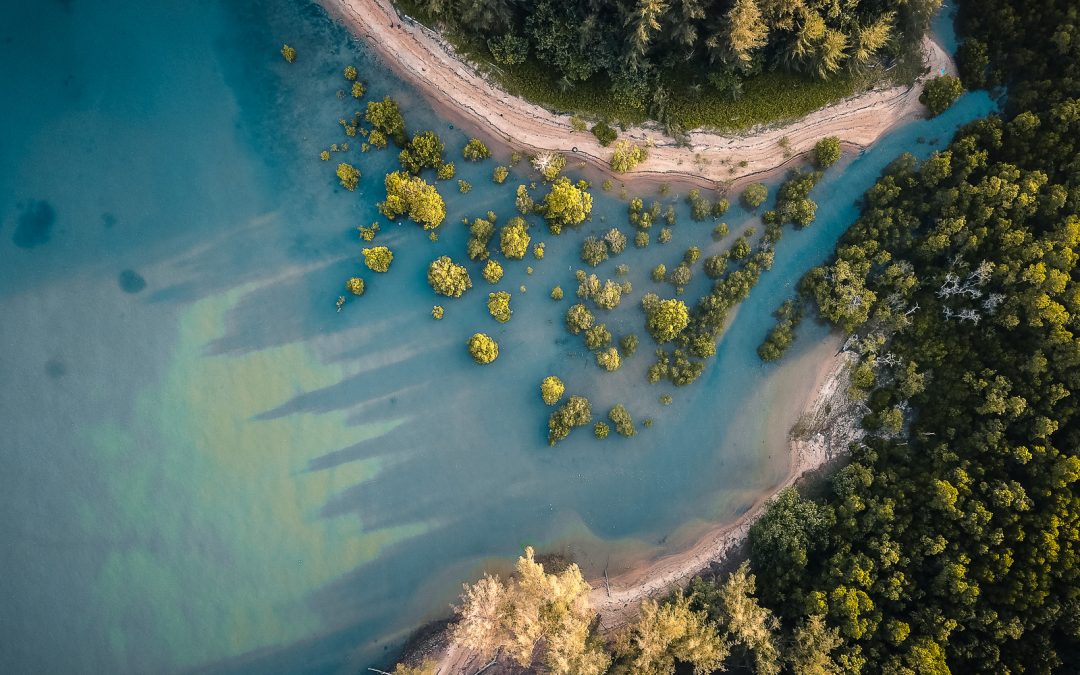
A project led by Ferdinando Villa, Ikerbasque researcher and head of the ARIES research and innovation platform of the Basque Center for Climate Change (BC3) has developed a pioneering technology to quickly account for natural capital by the governments. This process allows calculating the total of renewable and non-renewable natural resources (plants, animals, air, water, soils, minerals), which in combination provide benefits to people in a given ecosystem or region. The new open source application “ARIES for SEEA”, powered by artificial intelligence (AI), has been developed in collaboration with the Statistics Division of the United Nations Department of Economic and Social Affairs (UN DESA) and the United Nations Environment Program (UNEP), with the support of the Ministry of Education of the Basque Government.
This innovative technology is easy to use and allows, for the first time, to quantify and evaluate ecosystem services (such as climate regulation by forests, food production, etc.) in a fast, standardized and personalized way anywhere on the planet. The “ARIES for SEEA” application is available on the United Nations Global Platform: a service hosted in the cloud that promotes collaboration between countries through the exchange of knowledge, data, technology and scientific methods.
"The 'ARIES for SEEA' application marks a milestone for national governments wishing to implement the SEEA Ecosystem Accounting standard" emphasized Stefan Schweinfest, director of the UN DESA Statistics Division. "This technology allows countries to start compiling their national economic accounts from global data sources, which they can in turn complete with national data or model parameters."
The fact that the UN makes this pioneering technology available to governments is motivated by the adoption of the Ecosystem Accounting of the System of Environmental and Economic Accounting (SEEA), in March 2021. It is about an international standard that contributes to quantifying and evaluating the different ecosystems (forests, wetlands, etc.), through the monitoring of the extension, the condition and the benefits that these contribute to human well-being.
Its adoption represents a historic step for the preservation of ecosystems and the fulfillment of the Sustainable Development Goals (SDG), going beyond GDP in the monitoring of a common global progress.
The new app could also lead to more collaboration. Ferdinando Villa, Ikerbasque Professor and ARIES Principal Investigator at BC3, added: "There is a growing global demand to sustainably manage our natural resources and to achieve it, the scientific community and policy makers need to collaborate more and more. AI-powered technologies like 'ARIES for SEEA' are the key to a future where researchers and policymakers alike can openly integrate available knowledge and reuse it".
Until now, several countries such as China, India and Brazil have started using the “ARIES for SEEA” technology. The application will continue to expand in the coming months, adding new functionalities to extract indicators that allow evaluating progress towards the SDGs and the emerging Post-2020 Global Biodiversity Framework.
The application has been developed within the framework of the Natural Capital Accounting and Valuation of Ecosystem Services (NCAVES) project, which aims to advance towards a greater understanding of environmental and economic accounting, in particular ecosystem accounting. The project, funded by the European Union, is being jointly implemented by UN DESA and UNEP.
Further information:
- NCAVES project: https://seea.un.org/home/Natural-Capital-Accounting-Project
- Ecosystem accounting:: https://seea.un.org/ecosystem-accounting
- “ARIES for SEEA” factsheet: https://seea.un.org/sites/seea.un.org/files/aries_for_seea_factsheet_spanish.pdf
- “ARIES for SEEA” explanatory video: https://youtu.be/fPoCr-6GtMk
- “ARIES for SEEA” pictures: https://seea.un.org/content/aries-seea-stock-photos
.png)
